Steffen Lamparter
On Event-Driven Knowledge Graph Completion in Digital Factories
Sep 08, 2021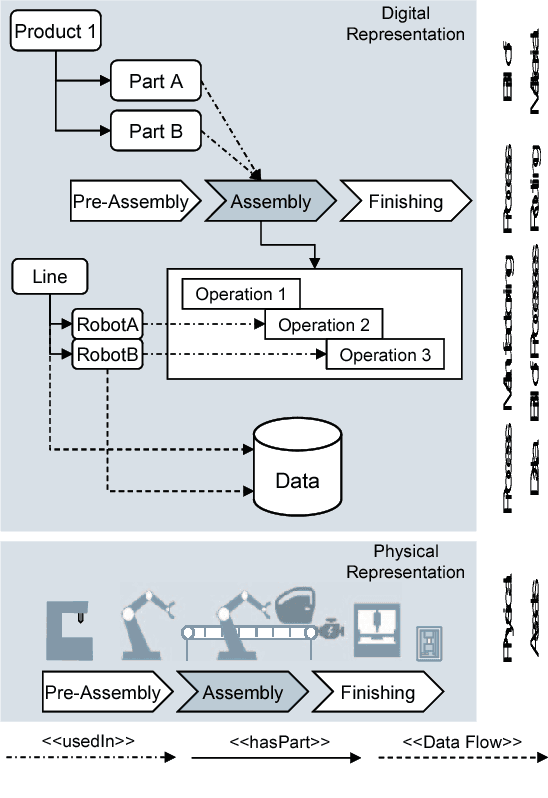
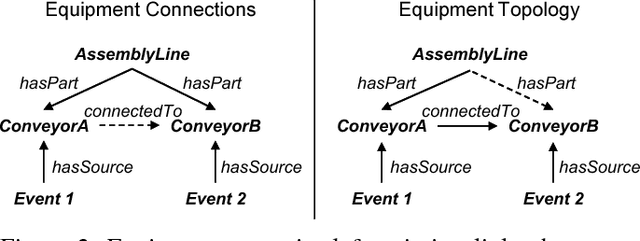


Abstract:Smart factories are equipped with machines that can sense their manufacturing environments, interact with each other, and control production processes. Smooth operation of such factories requires that the machines and engineering personnel that conduct their monitoring and diagnostics share a detailed common industrial knowledge about the factory, e.g., in the form of knowledge graphs. Creation and maintenance of such knowledge is expensive and requires automation. In this work we show how machine learning that is specifically tailored towards industrial applications can help in knowledge graph completion. In particular, we show how knowledge completion can benefit from event logs that are common in smart factories. We evaluate this on the knowledge graph from a real world-inspired smart factory with encouraging results.
Towards Analytics Aware Ontology Based Access to Static and Streaming Data (Extended Version)
Aug 15, 2016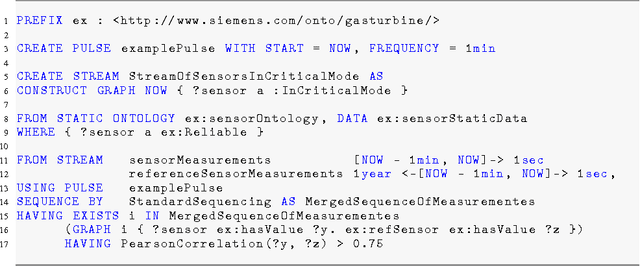

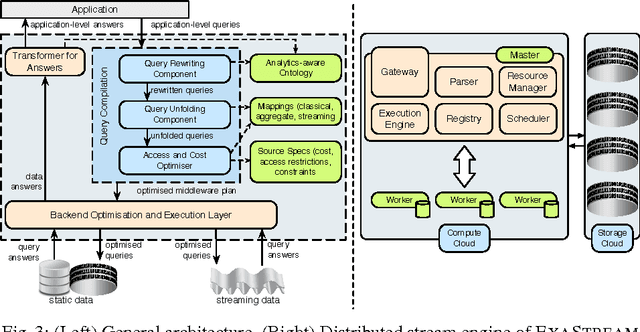
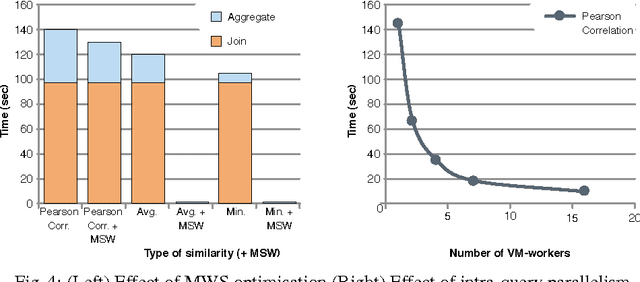
Abstract:Real-time analytics that requires integration and aggregation of heterogeneous and distributed streaming and static data is a typical task in many industrial scenarios such as diagnostics of turbines in Siemens. OBDA approach has a great potential to facilitate such tasks; however, it has a number of limitations in dealing with analytics that restrict its use in important industrial applications. Based on our experience with Siemens, we argue that in order to overcome those limitations OBDA should be extended and become analytics, source, and cost aware. In this work we propose such an extension. In particular, we propose an ontology, mapping, and query language for OBDA, where aggregate and other analytical functions are first class citizens. Moreover, we develop query optimisation techniques that allow to efficiently process analytical tasks over static and streaming data. We implement our approach in a system and evaluate our system with Siemens turbine data.
Context-Aware Analytics in MOM Applications
Dec 26, 2014


Abstract:Manufacturing Operations Management (MOM) systems are complex in the sense that they integrate data from heterogeneous systems inside the automation pyramid. The need for context-aware analytics arises from the dynamics of these systems that influence data generation and hamper comparability of analytics, especially predictive models (e.g. predictive maintenance), where concept drift affects application of these models in the future. Recently, an increasing amount of research has been directed towards data integration using semantic context models. Manual construction of such context models is an elaborate and error-prone task. Therefore, we pose the challenge to apply combinations of knowledge extraction techniques in the domain of analytics in MOM, which comprises the scope of data integration within Product Life-cycle Management (PLM), Enterprise Resource Planning (ERP), and Manufacturing Execution Systems (MES). We describe motivations, technological challenges and show benefits of context-aware analytics, which leverage from and regard the interconnectedness of semantic context data. Our example scenario shows the need for distribution and effective change tracking of context information.
 Add to Chrome
Add to Chrome Add to Firefox
Add to Firefox Add to Edge
Add to Edge